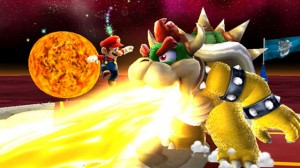-Ryan J. Hodge
For someone who enjoys a great story, is there anything better than a narrative that engages you from the very start? Imagine a world so rich you can almost smell the scents in the air, a delivery so clever it forces you to think in a way you never thought you would. I’m Ryan J. Hodge, author, and I’d like to talk to you about…Video Games.
Yes, Video Games. Those series of ‘bloops’ and blinking lights that –at least a while ago- society had seemed to convince itself had no redeeming qualities whatsoever. In this article series, I’m going to discuss how Donkey Kong, Grand Theft Auto, Call of Duty and even Candy Crush can change the way we tell stories forever.
What videogames teach us about heroism
Understanding what makes a hero and what makes a villain is something that’s been impressed upon us since childhood. The hero does ‘good’, the villain does ‘evil’. The hero will save the princess where the villain will lock her up.
While you may see the narrative waters muddied a bit by having a hero with a checkered past, or a villain with a tragic backstory that led him on the path to what he became; it’s usually very clear who the author hopes the audience will root for. However, this can create its own set of problems. At times, characters can be presented as so infallibly good or so irredeemably evil, that the audience cannot even relate to them.
In The Hunger Games (Suzanne Collins, 2008), ‘proper’ society has found it acceptable to pit children against each other in annual death matches and, for some reason, does not view it as a despicable thing to do. Now this is, perhaps, somewhat explicable (the ancient world hosted similar events, after all); but what is more troubling is the fact that many of the ‘participants’ (whom are chosen at random) are not only adept but eager to be thrust into mortal combat –going so far as to mock those who plead for mercy.
This creates a situation where the animosity surrounding the circumstances of the Hunger Games so bogglingly unrelatable, that we as the audience are forced to immediately seize upon the only character who isn’t cackling at all the bloodshed. However; what we find in Katniss (as well as a large amount of ‘Young Adult’ genre heroes) is, despite her ‘hero’ status, situations are more likely to happen to her rather than because of her. She never truly embraces the culture of the Hunger Games (she fights defensively, she allies with weaker participants, and does not even consider winning the way she’s ‘supposed’ to), yet she still emerges the victor in this violent, decades-old tradition. In effect, she is able to emerge from this harrowing experience wiser, nearly unchanged as a character from the point we, as the audience, met her.





